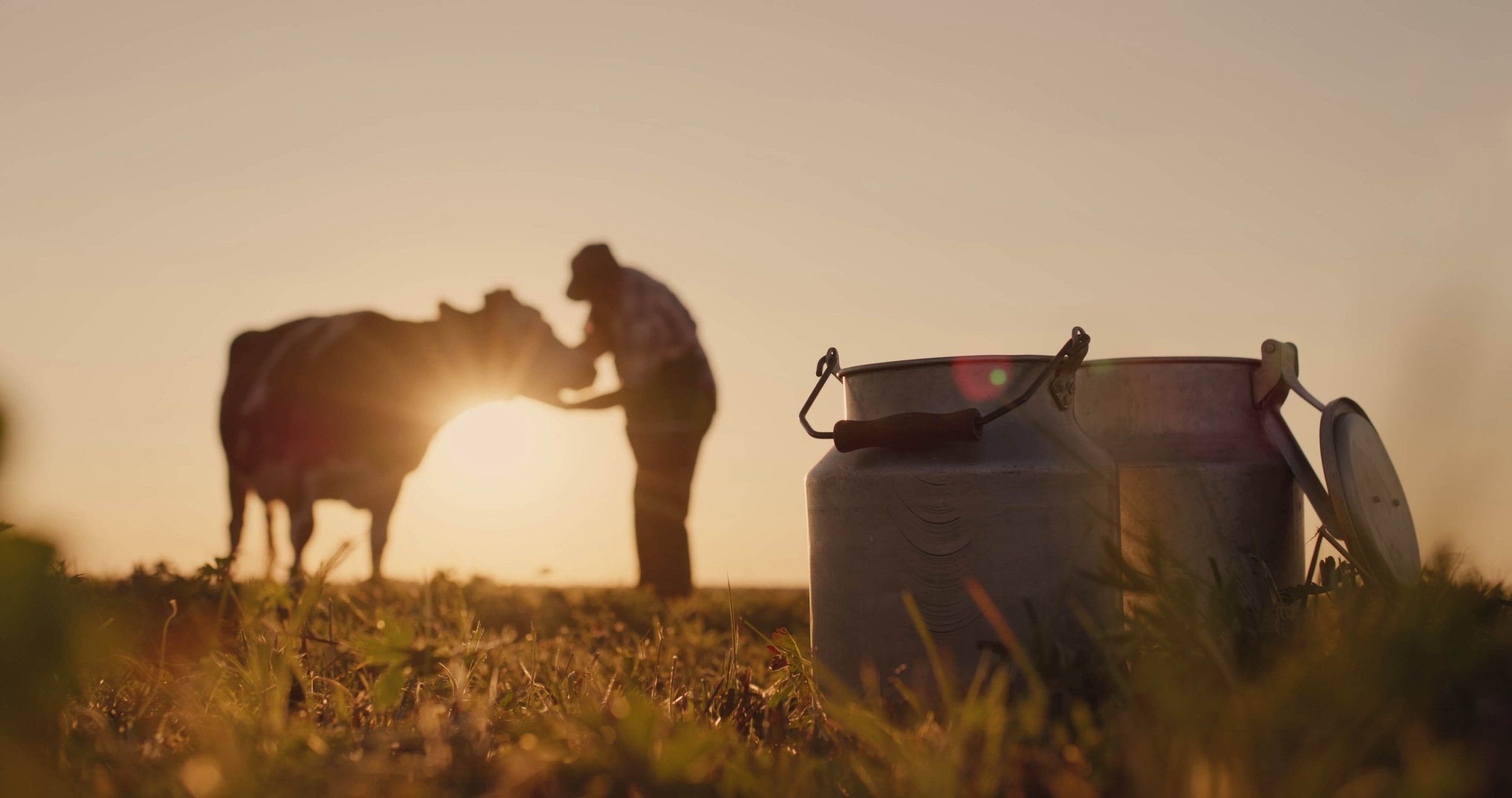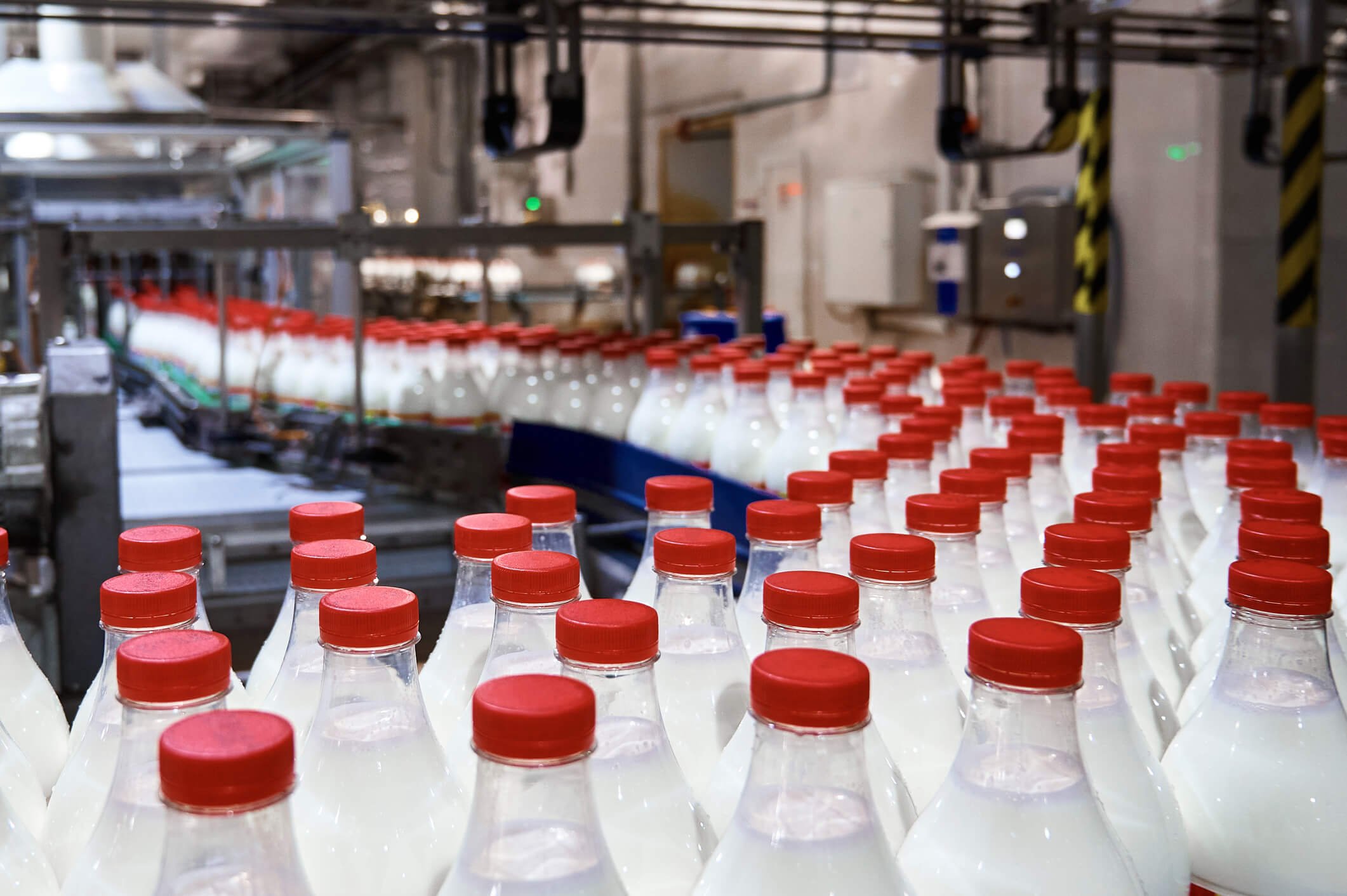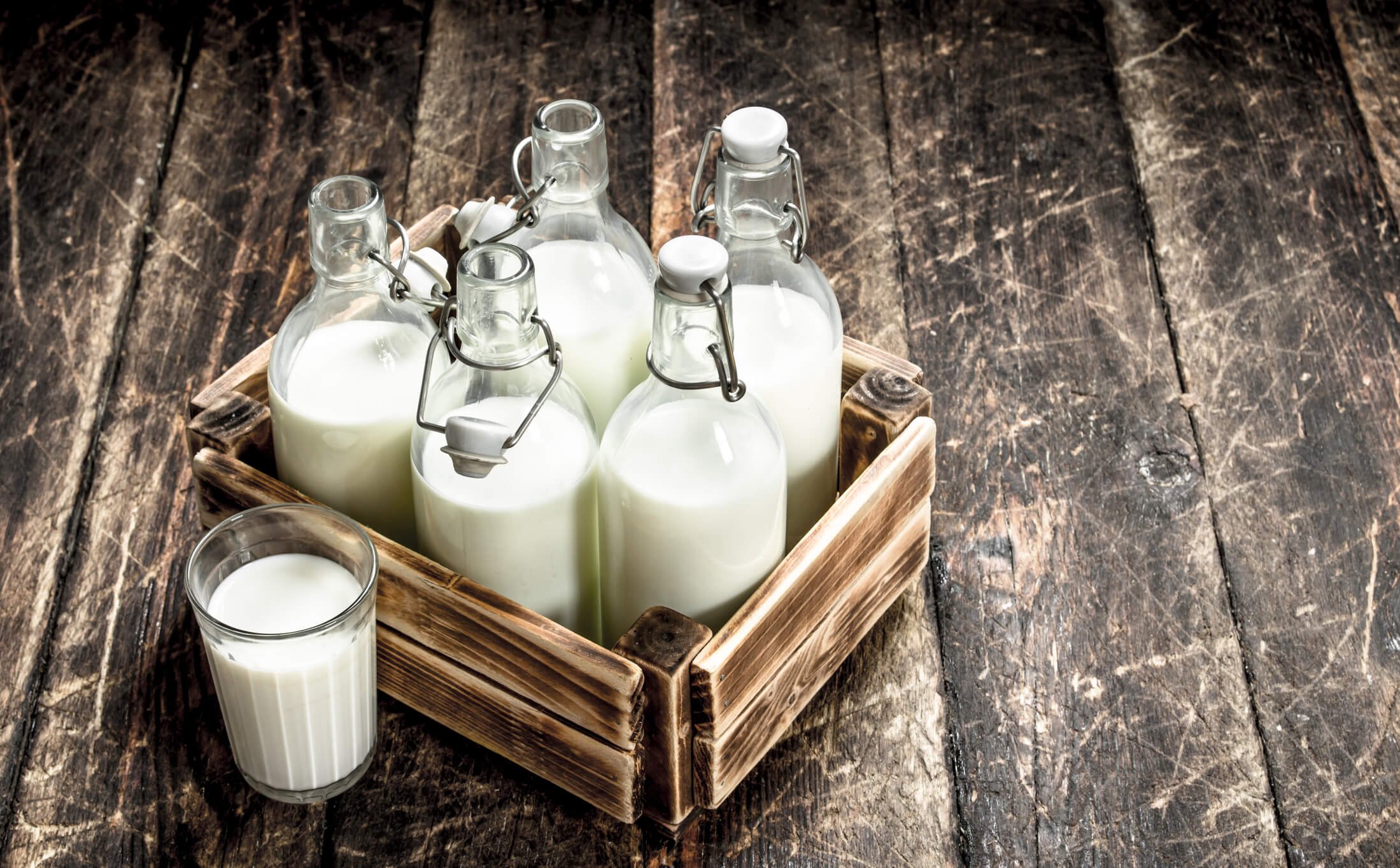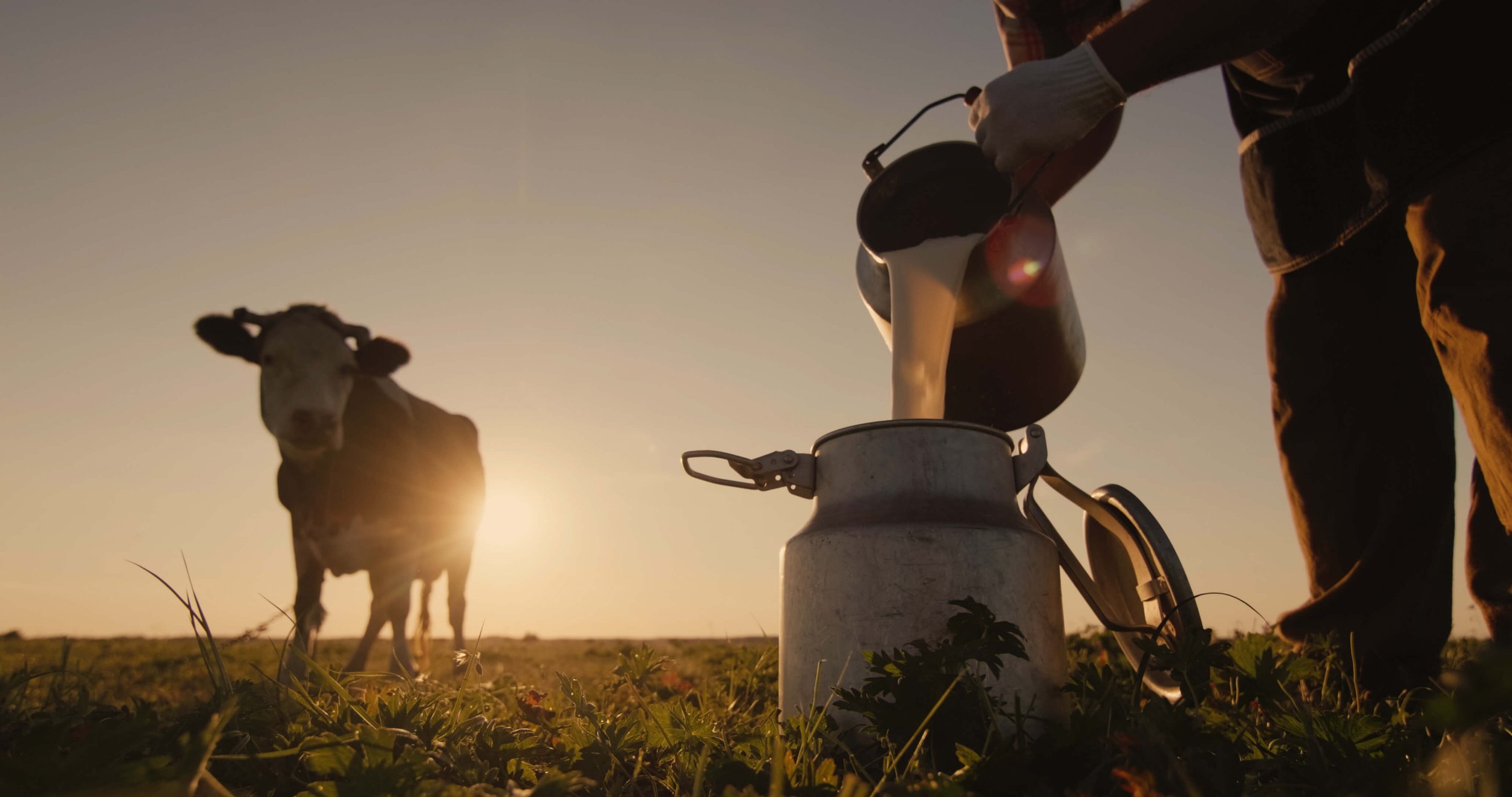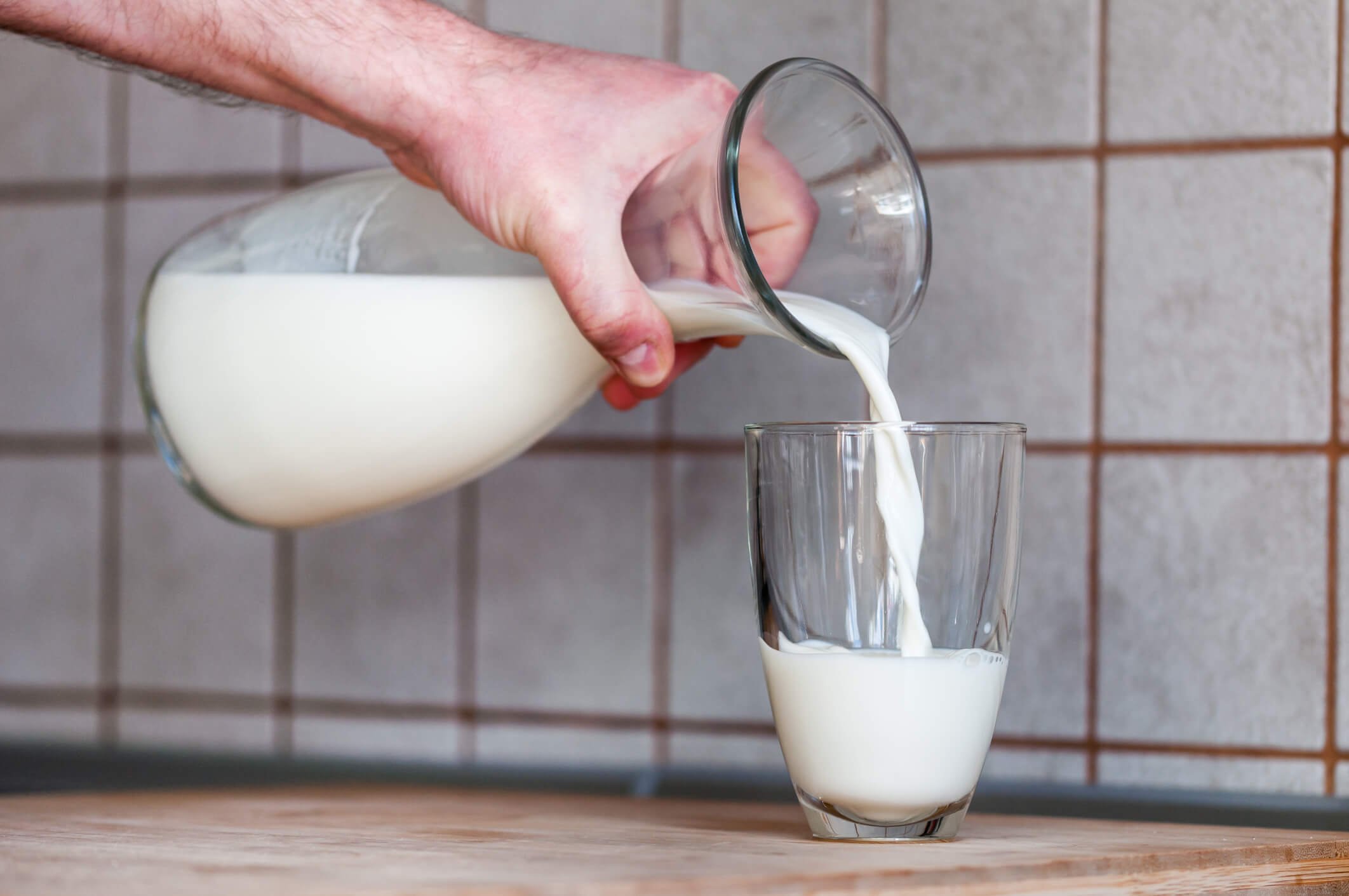Ultimate Raw Milk Resource Guide
Raw milk is a nutritious and delicious beverage that has been enjoyed for centuries. Yet, despite the many health benefits of raw milk, some people are still hesitant to drink it. This resource guide will provide you with everything you need to know about raw milk, from its history and health benefits to where you can find it.
Discover the comprehensive and invaluable "Ultimate Raw Milk Resource Guide" that serves as a beacon for enthusiasts and newcomers alike. Gain a profound insight into the understanding raw milk movement and its cultural, nutritional, and ethical significance.
This guide is a treasure trove of information, shedding light on the safety protocols and best practices for raw milk consumption, emphasizing the importance of raw milk practice safety. Delve into the intriguing raw milk French Paradox and its potential health benefits, offering a nuanced understanding of this controversial topic.
Explore the comparison between raw milk and UHT milk, gaining a deeper understanding of their nutritional differences and similarities in the context of raw milk and UHT milk comparison. Additionally, the guide highlights the seasonal nature of raw milk production and its impact on flavor and availability, providing valuable insights into raw milk seasonality.
Furthermore, "Ultimate Raw Milk Resource Guide" offers a comprehensive perspective on the potential benefits of raw milk as a recovery drink, catering to individuals seeking natural sources of nourishment. Whether you're a passionate advocate of raw milk or a curious newcomer, this guide is an indispensable companion for navigating the world of raw milk consumption.
What is Raw Milk?
Raw milk is a type of milk that has not been pasteurized or homogenized. Instead, as its name suggests, raw milk is taken directly from the animal without further processing.
Raw milk from cows, goats, sheep, buffalo, or camels is used to make various products, including raw cheese, yogurt, and ice cream. It contains natural fats and proteins present in milk from the animal, as well as a range of vitamins and minerals. However, it also risks foodborne illness, as bacteria can multiply quickly in raw milk. As a result, raw milk must be handled carefully and consumed within a short period after it is collected.
While some believe that raw milk has more health benefits than pasteurized milk, no scientific evidence supports this claim.
"Pasteurized Milk" Explained
Milk is a highly perishable product, requiring special care to ensure that it stays fresh for human consumption. Pasteurization is a process of heating milk to kill bacteria, yeasts, and molds. The process was named after its creator, French chemist, and microbiologist Louis Pasteur, who demonstrated the connection between microorganisms and food spoilage.
Pasteurization also increases the product's shelf life. The most common method in the U.S. today is High-Temperature Short-Time pasteurization, which involves heating milk to at least 161°F for 15 seconds.
However, some milk is heated to an even higher temperature, known as ultra-heat treatment (UHT). UHT milk is heated to 275°F (135°C) for a few seconds, extending its shelf life to 9 months.
While these methods effectively kill harmful bacteria, they also destroy many of the beneficial enzymes and nutrients in raw milk. As a result, some people believe that raw milk is a more healthful choice. However, it's important to note that raw milk can also harbor harmful bacteria that can cause foodborne illnesses, so it's essential to be aware of the risks before consuming it.
Ah, the classic Pasteurized vs Unpasteurized Milk debate. It's an endless one, but people have been drinking milk long before it started being pasteurized in the late 19th century in Europe. What makes it so risky now?
The Growing Popularity of Raw Milk
Americans have increasingly been trying to eat foods that are closer to nature. This means eating food with minimal processing and, in some cases, consuming raw milk products.
Before the introduction of pasteurization in the early to mid-1900s, milk was consumed in its natural, unprocessed state - raw. A growing number of people believe that raw milk is healthier than pasteurized milk, and as a result, its demand is increasing.
Some potential benefits of drinking raw milk include more vitamins and enzymes, which can aid digestion. Raw milk also contains beneficial bacteria that can help keep the gut healthy. However, some risks are associated with drinking raw milk, as it may contain harmful bacteria that can cause serious illness.
For this reason, it is essential to ensure that any raw milk you consume comes from a reputable source. Overall, the growing popularity of natural, local, farm-sourced foods leads more Americans to try drinking raw milk.
The History of Pasteurization in the United States
Before the advent of pasteurization, milk was a common source of outbreaks caused by disease-causing bacteria. The history of pasteurization in the United States can be traced back to the 1890s when the process was first used to control the spread of bacterial diseases. Germ theory was still relatively new at the time, and the discovery that many diseases could be transmitted through contact with contaminated surfaces was not yet common knowledge.
However, it was already known that raw milk could be a breeding ground for bacteria and that these bacteria could cause severe illnesses in humans. As a result, several states began to require that all dairy products be heated to a high temperature to kill harmful bacteria. This process, known as pasteurization, quickly became standard practice in the United States and has remained so ever since.
While there have been some debates over the years about the safety of pasteurized milk, there is no doubt that the process has saved countless lives and helped ensure our food supply's safety.
Common Claims About the Benefits of Raw Milk
Listed below are several claims about the benefits of raw milk, but it is important to note that there needs to be evidence to support most of the claims made about it.
Pasteurized Milk Has Fewer Nutrients
Raw milk advocates argue that pasteurized milk is nutritionally inferior to raw milk. They point to the fact that pasteurization destroys vitamins and enzymes, making it harder for the body to absorb the nutrients in milk. Advocates also argue that pasteurized milk is more likely to contain harmful bacteria, as the high temperatures of pasteurization can create an ideal environment for bacteria to thrive.
As a result, they believe that raw milk is a more natural and healthful choice. While there may be some truth to these claims, pasteurized milk still contains many of the same nutrients as raw milk and is generally safe to consume.
Pasteurizing Milk Destroys Proteins
Many believe that the pasteurization process destroys essential proteins in milk. While there is no scientific evidence to support this claim, raw milk advocates choose raw milk over pasteurized because of many of the beneficial bacteria and enzymes found in milk.
However, these days, raw milk is often contaminated with harmful bacteria such as E. coli and Salmonella. Pasteurization helps to kill these bacteria, making milk safer to drink. While it is true that pasteurization slightly alters the taste of milk, it does not necessarily make it less healthy. On the contrary, pasteurization is one of the most effective ways to ensure milk is safe and nutritious.
When choosing to consume raw milk, it is essential to remember that it should always be appropriately stored and consumed within a few days of purchase to ensure that it is fresh and free of contaminants. By following these simple precautions, consumers can enjoy raw milk's benefits without risking their health.
Raw Milk is Better For People With Lactose Intolerance
Raw milk is said to be better for people with lactose intolerance. While it is true that raw milk contains lactase, an enzyme that breaks down lactose, it is unclear whether this enzyme is active in the human digestive system. In addition, raw milk also contains bacteria that may contribute to lactose intolerance.
Raw milk is an excellent source of calcium, protein, and other essential vitamins and minerals for many people. In addition, some studies have shown that raw milk helps reduce irritable bowel syndrome symptoms, so it is worth trying for people who suffer from this condition.
Raw milk can be a healthy and delicious addition to the diet, but it is essential to exercise caution when consuming it.
Pasteurizing Milk Reduces Fatty Acids
Raw milk advocates argue that pasteurizing milk reduces its nutritional value by destroying enzymes, vitamins, and beneficial bacteria. They also claim that pasteurization makes milk less digestible and alters its taste.
Raw milk advocates say it is a more natural product and contains higher levels of beneficial fatty acids. However, they argue that these fatty acids are destroyed during pasteurization, making pasteurized milk less healthy than raw milk.
While there is some debate over the nutritional benefits of raw milk, there is no denying that it is a more natural product. Raw milk advocates argue that it is worth consuming a more natural product despite the risks. To minimize the risk of becoming sick, those who wish to drink raw milk should purchase it from a reputable source and avoid consuming it if they have a compromised immune system.
Raw Milk has Microbes That Protect Against Allergies and Asthma
Raw milk advocates argue that raw milk protects against allergies and asthma. In addition, they point to the fact that early exposure to bacteria helps to build up the immune system, and pasteurized milk is devoid of these benefits.
They point to studies showing that people who drink raw milk are less likely to suffer from allergies and asthma. While some evidence supports these claims, more research is needed to confirm them.
While raw milk does contain some beneficial bacteria, it can also harbor harmful pathogens that can cause serious illness, especially in young children, the elderly, and those with a compromised immune system. In the meantime, those who wish to drink raw milk should purchase it from a reputable source and avoid consuming it if they have a compromised immune system.
What Are the Risks Associated with Drinking Raw Milk?
Milk is a nearly perfect food for bacteria. Its high water content and neutral pH provide an ideal environment for bacterial growth, while its nutritional content helps bacteria to multiply quickly.
The problem is that milk comes from a sterile animal body environment. From the moment the animal is milked, bacteria can begin to contaminate the milk. The udder, skin, feces, milking equipment, handling, and storage all present opportunities for contamination.
Often, these contaminants are not detectable until growth is significant. This makes milk a potentially dangerous food for consumers.
Raw milk has been a topic of debate for many years. Read on as TexasRealFood tackles its Health Benefits, Risks, and Side Effects.
Bacteria and Symptoms of Food-Borne Illnesses
Milk is an essential part of many people's diets, providing vital nutrients like calcium and vitamin D. However, milk can also contain harmful bacteria that can cause foodborne illnesses.
Some of the most common bacteria in milk include Campylobacter, Salmonella, Escherichia coli (E.coli), Coxiella burnetti, Cryptosporidium, Yersinia enterocolitica, Staph aureus, Listeria monocytogenes.
These bacteria can cause symptoms like nausea, vomiting, and diarrhea; in some cases, they can even lead to death. As a result, it is essential to take precautions to ensure that milk is safe to consume. This includes buying milk from reputable sources and ensuring it is always properly refrigerated.
Anyone who suspects they may have contracted a foodborne illness should seek medical attention as soon as possible.
Is Raw Milk Legal in Texas?
Until recently, the sale of raw milk was illegal in Texas. This is because raw milk has not been pasteurized or homogenized, meaning that it has not undergone a process of heating milk to a high temperature to kill bacteria. Raw milk proponents argue that this process also kills essential enzymes and beneficial bacteria, making raw milk a more healthful choice. However, unpasteurized milk can also pose serious health risks, as bacteria such as E. coli and Salmonella can thrive in raw milk. As a result, the sale of raw milk was long considered to be a "black market commodity" throughout Texas.
The Farm and Ranch Freedom Alliance (FRFA) is a national organization supporting family farmers' independence. After a long and hard-fought battle, the FRFA successfully got raw milk approved for delivery throughout the state of Texas. However, there are strict laws and regulations regarding the production and distribution of raw milk. For example, raw milk must be labeled, and producers must adhere to strict sanitation protocols. In addition, only licensed dairy farms are allowed to sell raw milk, and they must do so through direct delivery or pick-up only – no retail sales are allowed.
As a result of these laws and regulations, raw milk is still a niche product in Texas. But it is now readily available for those looking for a more healthful alternative to pasteurized milk.
Find out about the latest Raw Milk Regulations of The Texas Department of State Health Services(DSHS) regarding unpasteurized milk.
Local Businesses Selling Raw Milk in Texas
Texas is one of a handful of states that allow farmers to sell raw milk, but strict regulations are in place to ensure the product's safety. Farmers who want to sell raw dairy must obtain a Texas Department of State Health Services license. The permit requires the seller to follow specific safety and sanitation requirements, such as testing the milk for harmful bacteria and keeping the milk at a temperature that will prevent the growth of bacteria. They must also follow sanitary guidelines and maintain detailed records of their herd health. These requirements help to ensure that raw milk is safe to consume and protect consumers from foodborne illness.
Listed below are some of our trusted local businesses selling raw milk in Texas:
All-Natchur-L Farm
All-Natchur-L Farm is a unique place that offers a variety of all-natural products. In addition to raw milk, they sell free-range eggs, raw cheese, honey, and handcrafted organic soap. The farm also has a variety of animals, including cattle, calves, and heifers. The cows not for sale help them produce the other items they sell. The Angus/ Holstein and belted Galloway/ Holstein crosses are particularly well-suited for producing raw milk. They have the perfect blend of genetics and behavior that results in high-quality milk perfect for drinking or making into cheese.
Address: 5720 County Rd 309, Cleburne, 76031
Contact: (817) 223-2441
Healthy Way Dairy
If you're looking for the best raw milk around, Healthy Way Dairy is the place to go. This certified grade-A dairy is home to cows that are well-cared for and loved unconditionally, and it shows in the milk they produce. Healthy Way's milk is thick, creamy, and consistently delicious, making it a favorite among coffee and tea drinkers who appreciate the milk's unique original taste. Even more impressive than the milk quality is the fact that there's an honor system for payment - place your cash in the tin box or use the Venmo app to pay, making transactions quick and convenient. Visit Healthyway Dairy, and you'll see why so many people love this farm's milk.
Address: 15526 Cedar St, Santa Fe, TX 77517
Contact: (409) 739-2389
N & P Farm and Dairy LLC
Nestled in the rolling hills of Farmersville, Texas, N & P Farm and Dairy LLC is a family-owned and operated dairy farm that produces Texas License Grade A Raw Dairy. The farm sells various milk and dairy products, including cow's milk, raw goat milk, yogurt, kefir, cream, and buttermilk. What sets N & P Farm and Dairy LLC apart from other dairies is the opportunity to sample the products before purchasing them. As a result, visitors to the farm can enjoy a glass of raw milk, kefir, or homemade chocolate milk, free from any high fructose corn syrup (how long does corn syrup last?). The farm also sells coffee, milk, and buttermilk. So if you're ever in the Farmersville area, stop by N & P Farm and Dairy LLC for a truly unique experience.
Address: 713 Co Rd 610, Farmersville, 75442
Contact: (972) 658-0291
Trimble Farms
The Trimble family has been committed to producing healthy, sustainable food for their community for over four decades. Nestled in the heart of Big Sandy, Texas, Trimble Farms feature a diverse array of offerings, from grade A clean, non-pasteurized cow milk to grass-fed beef and organic vegetables. In addition to their commitment to quality, the Trimbles are passionate about educating their customers about their food and its production. As more and more people become interested in eating healthy, sustainable foods, the Trimbles are proud to offer a wide variety of items that meet those needs. So whether you're looking for fresh milk,
beef, or locally-grown produce, Trimble Farm is sure to have something that will fit your needs.
Address: 9274 FM 1795, Big Sandy, TX 75755
Contact: (903) 576-0393
Youngs Prairie Dairy
At Youngs Prairie Dairy, the health and well-being of their goats are paramount. The farmers have named each of their Nubians and Alpines, and they take care of them with the utmost love and attentiveness. This approach promotes the best health and the highest quality of their milk. Furthermore, the farmers run a holistic ranch that does not use herbicides or fertilizers. They believe feeding their goats a clean diet of alfalfa, grass hay, grain, and foraging is the best way to produce nutritious and delicious milk. Youngs Prairie Dairy obtained the Grade A Certified Raw Dairy license in December of 2011, ensuring their milk is of the highest quality. Thanks to the care and dedication of the farmers, Youngs Prairie Dairy produces some of the best-tasting goat milk.
Address:356 Youngs Prairie RD, Elgin, TX 78621
Contact: (512) 304-5201
Summary
Raw milk is a nutritious and delicious beverage that has been enjoyed for centuries. Yet, despite the many health benefits of raw milk, some people are still hesitant to drink it. Raw milk is an excellent source of vitamins, minerals, and enzymes for good health. It also contains beneficial bacteria that can help to keep your gut healthy. However, raw milk can also contain harmful bacteria that can cause serious illness. That's why it's essential only to drink raw milk from reputable sources. We hope our resource guide has provided you with everything you need to know about raw milk, from its history and health benefits to where you can find it. Thanks for reading!
Explore the TexasRealFood promptuary and discover the origins of how people started to consume milk from domestication thousands of years ago, to becoming one of the most produced commodities in the world.
Discover hormone-free milk in Texas at these five raw milk dairy farms, offering natural, nutritious options with no added hormones or excessive processing.

